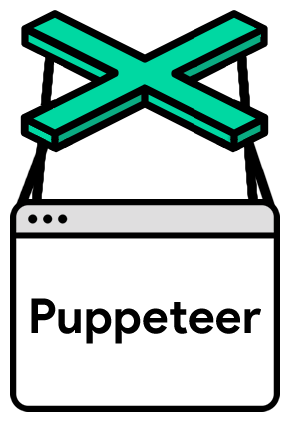PDF Creation Method
- puppeteer:
puppeteer generates PDFs by rendering web pages in a headless Chrome browser, capturing the exact visual output of the page, including CSS and JavaScript effects.
- react-pdf:
react-pdf renders PDF documents using React components, allowing developers to create and manipulate PDF content as part of the React application lifecycle.
- pdfmake:
pdfmake uses a declarative syntax to define the document structure, allowing for dynamic content generation and styling based on JavaScript objects.
- pdfkit:
pdfkit allows for programmatic PDF creation, enabling developers to define text, images, and shapes directly in the code, providing high customization.
- html-pdf:
html-pdf converts HTML content to PDF using PhantomJS, making it easy to generate PDFs from existing web pages or templates without much setup.
- wkhtmltopdf:
wkhtmltopdf uses the WebKit rendering engine to convert HTML to PDF, ensuring that the output closely resembles the original web page.
Customization and Flexibility
- puppeteer:
puppeteer offers flexibility in capturing web pages, allowing developers to manipulate the DOM before generating the PDF, which can be useful for dynamic content.
- react-pdf:
react-pdf allows for component-based PDF generation, enabling developers to leverage React's state and props for dynamic content, providing a familiar development experience.
- pdfmake:
pdfmake is highly flexible, allowing for dynamic content and styles. It supports features like tables, lists, and custom fonts, making it suitable for complex documents.
- pdfkit:
pdfkit provides extensive customization capabilities, allowing developers to control every aspect of the PDF, including fonts, colors, and positioning of elements.
- html-pdf:
html-pdf offers limited customization options, primarily focusing on converting existing HTML. It is less flexible for creating complex layouts from scratch.
- wkhtmltopdf:
wkhtmltopdf is flexible in terms of HTML and CSS support, allowing developers to use standard web technologies to create visually appealing PDFs.
Learning Curve
- puppeteer:
puppeteer has a steeper learning curve, particularly for those unfamiliar with headless browsers, but provides powerful capabilities once mastered.
- react-pdf:
react-pdf is relatively easy to learn for React developers, as it integrates seamlessly with the React ecosystem and follows familiar component patterns.
- pdfmake:
pdfmake has a moderate learning curve, especially for those new to its declarative syntax, but offers comprehensive documentation to ease the process.
- pdfkit:
pdfkit has a moderate learning curve due to its programmatic nature, requiring developers to understand its API for effective use.
- html-pdf:
html-pdf is easy to learn for developers familiar with HTML and Node.js, as it requires minimal setup and configuration.
- wkhtmltopdf:
wkhtmltopdf is straightforward to use for those familiar with command-line tools, but may require additional knowledge of HTML/CSS for optimal results.
Use Cases
- puppeteer:
puppeteer excels in scenarios where capturing the exact rendering of a webpage is crucial, such as generating documentation or reports from web applications.
- react-pdf:
react-pdf is tailored for React applications that need to display or generate PDF documents directly within the app, making it suitable for e-books or reports.
- pdfmake:
pdfmake is perfect for applications that need to generate dynamic PDFs based on user input, such as forms or reports that change based on user data.
- pdfkit:
pdfkit is ideal for applications that require custom-designed PDFs, such as brochures, flyers, or any document with specific layout requirements.
- html-pdf:
html-pdf is best suited for simple applications that need to convert existing HTML pages into PDFs, such as generating invoices or reports from web templates.
- wkhtmltopdf:
wkhtmltopdf is well-suited for server-side applications that require reliable HTML to PDF conversion, such as generating printable versions of web pages.
Performance
- puppeteer:
puppeteer offers excellent performance for rendering web pages, but generating PDFs can be resource-intensive, especially for large or complex pages.
- react-pdf:
react-pdf performance is generally good, but rendering large documents may require optimization to ensure a smooth user experience.
- pdfmake:
pdfmake is efficient for generating dynamic PDFs, but performance can be impacted by the complexity of the document structure and the amount of data being processed.
- pdfkit:
pdfkit performs well for generating PDFs programmatically, but performance may vary based on the complexity of the document being created.
- html-pdf:
html-pdf performance is generally good for simple documents but may struggle with complex layouts or large documents due to its reliance on PhantomJS.
- wkhtmltopdf:
wkhtmltopdf performs reliably for standard HTML to PDF conversions, but performance may degrade with very large or complex HTML documents.


